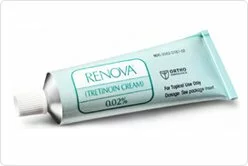 Psoriasis is a common skin condition that is characterized by patches or lesions mostly on the skin areas prone to pressure like knees, elbows, and near the belt buckle and bra line. Psoriasis affects a large part of the epidermis, which becomes scaly and sheds continuously. It usually disappears spontaneously in summer only to reappear in winter. It is an autoimmune disorder that is usually genetic in origin. The factors that lead to this disease are sunburns or lack of sunlight, alcohol consumption, mental stress, dryness of the skin, some medicines and infections. The typical skin lesions of psoriasis are thick, flakey, silver-white patches over the skin, known as scales. There can also be redness and irritation of the skin.
Psoriasis is a common skin condition that is characterized by patches or lesions mostly on the skin areas prone to pressure like knees, elbows, and near the belt buckle and bra line. Psoriasis affects a large part of the epidermis, which becomes scaly and sheds continuously. It usually disappears spontaneously in summer only to reappear in winter. It is an autoimmune disorder that is usually genetic in origin. The factors that lead to this disease are sunburns or lack of sunlight, alcohol consumption, mental stress, dryness of the skin, some medicines and infections. The typical skin lesions of psoriasis are thick, flakey, silver-white patches over the skin, known as scales. There can also be redness and irritation of the skin.
Psoriasis and vitamin deficiency
Deficiency of some vitamins can be a trigger factor for psoriasis. Vitamin A and vitamin D are essential for the maintenance of good and healthy skin. Lack of these vitamins can increase the risk of psoriasis in patients. So, increased consumption of foods rich in these vitamins is required for prevention of psoriasis. It is also essential for patients suffering from psoriasis to prevent the aggravation of the disease. Some good sources of vitamin A are beef liver, squash, whole milk, fortified foods, cod liver oil, cheese, pumpkins, carrots and halibut fish oil. The sources of vitamin D are fortified milk, cheese, fish, cream, oysters and butter. Patients can also take vitamin A and vitamin D supplements for faster relief from the symptoms of psoriasis. Vitamin A supplements can help in normalizing the activity of DNA in skin cells and Vitamin D supplements can reduce the rate of growth of abnormal skin cells, in psoriasis patients.
Symptoms of psoriasis
This disease typically presents with skin patches that are silver-white, along with redness of the skin. The skin becomes scaly and thick. The scales come off after mild rubbing making visible the tiny bleeding spots beneath it. Patients can complain of pain and itching over the joints. There can also be thickening of nails, brownish yellow spots on nails, a dent on the surface of nails and separation of the nail from its base. Patients may also complain of lot of dandruff and scaling over the scalp.
Treatment and care of psoriasis
Psoriasis is a chronic disorder and can not be completely cured. The treatment of the disease involves preventing infections and controlling the symptoms. A combination of various therapies is used in treating psoriasis including antibiotics, vitamin supplements, topical creams and light therapy. Proper care of the skin is necessary to prevent aggravation of the condition. Patients should strictly avoid rubbing the skin, as it can irritate the skin and aggravate the condition. Patients are advised to get a good amount of sun exposure as lack of exposure to sunlight can trigger an attack of psoriasis. However, patients should also use a good sunscreen lotion to avoid sunburns.
A good mode of treatment for psoriasis is available in the form of Soriatane. It is a derivative of vitamin A and belongs to a class of drugs called retinoids. Taking large doses of this medicine can reduce the thickening and scaling of the skin and prevent the recurrent attacks of psoriasis. It is known that systemic administration of vitamin A is toxic and leads to liver damage or even death. However, Soriatane can be safely given to patients of psoriasis as it decreases the unwanted toxic effects of vitamin A and also enhances the beneficial effects of it by minimizing the scaling and thickness of skin. So, patients of psoriasis are advised to use of Soriatane for the effective treatment of the condition.



 October 17th, 2011
October 17th, 2011  admin
admin


 Posted in
Posted in 


